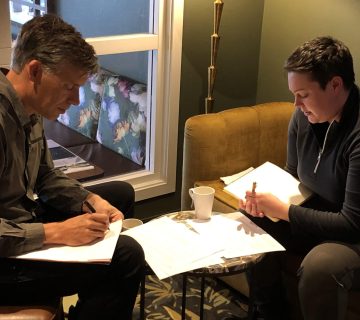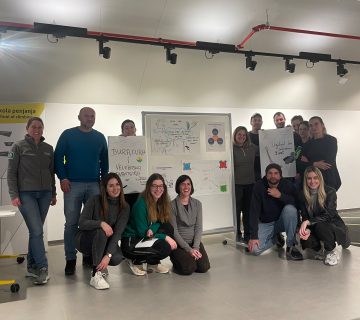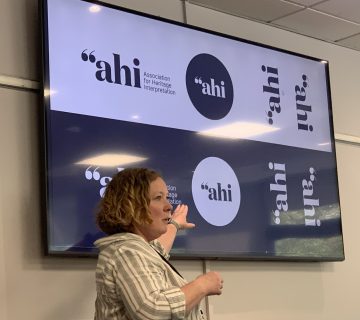Interreg Med 2014-2020
The third call for modular projects will be closed on the 31 January 2019. The allocation for this call is €22,000,000 within priority axis 3: Protecting and promoting Mediterranean natural and cultural resources. Objective 3.1 is: To enhance the development of a sustainable and responsible coastal and maritime tourism in the MED area and specifically to enhance the development of policies and increase the coordination of strategies between territories at interregional and transnational level regarding the development of a sustainable and responsible coastal and maritime tourism, in line with the integrated coastal zone management and maritime spatial planning principles, through cooperation and joint planning. The result indicator aims at measuring the level of sustainability of tourism in MED coastal regions.
The concept of modular projects refers to all thematic module-based projects from the Axes 1, 2 and 3. A project can be composed by one or several modules depending on its strategy and main objectives, expected results, competences and experience of the partnership. Each one of the possible configurations (single-module or multi-module) is called a type of project.
A module is a complete cycle of a project, with a partnership, a budget, specific objectives, outputs and expected results to be implemented in a given period. There are three types of module, M1: Studying, M2: Testing, and M3: Capitalising. Multi-module types of projects are justified by a medium-term vision, with a project proposal combining different objectives and results and the need for a multiple skills partnership.
The terms of reference can be found at:
https://interreg-med.eu/fund-my-project/calls/third-call-for-modular-projects/
Horizon 2020
€3,000,000 are allocated within Transformations-04-2019-2020: Innovative approaches to urban and regional development through cultural tourism. The various forms of cultural tourism in Europe are seen as important drivers of growth, jobs and economic development of European regions and urban areas. They also contribute, by driving intercultural understanding and social development in Europe through discovering various types of cultural heritage, and to the understanding of other peoples’ identities and values. However, although cultural tourism by its nature invites cross-border regional and local cooperation, its full innovation potential in this respect is not yet fully utilised. The level of development of cultural tourism between certain regions and sites is still unbalanced, with deprived remote, peripheral or deindustrialised areas lagging behind, whereas high demand areas are overexploited in an unsustainable manner. There is also a significant knowledge gap in terms of availability of both quantitative and qualitative data on the phenomenon of cultural heritage tourism and on understanding its contribution towards cultural Europeanisation and economic and social development in Europe.
Further information can be found at:
https://ec.europa.eu/research/participants/portal/desktop/en/opportunities/h2020/topics/transformations-04-2019-2020.html
€3,000,000 are also allocated to Transformations-08-2019: The societal value of culture and the impact of cultural policies in Europe. Culture has been an important element of public policy for social, cultural and political cohesion and inclusion throughout European history and its potential could be significantly enhanced. Although it is often seen today from the angle of economic value added, culture generates additional societal value in terms of well-being and by promoting identity and belonging, inclusiveness, tolerance and cohesion. Culture is also a source of creativity and innovation. The challenge is to develop new perspectives and improved methodologies for capturing the wider societal value of culture, including but also going beyond its economic impact.
Further information can be found at:
https://ec.europa.eu/research/participants/portal/desktop/en/opportunities/h2020/topics/transformations-08-2019.html
€4,000,000 are allocated within DT-Transformations-11-2019: Collaborative approaches to cultural heritage for social cohesion. While a key mission of the cultural heritage sector is to provide inclusive access, some socio-cultural groups are still not sufficiently integrated in cultural heritage experiences. The challenge is to improve the design of cultural experiences by enhancing participatory and collaborative approaches and by fostering mutual cultural understanding and resilient strategies.
Further information can be found at:
https://ec.europa.eu/research/participants/portal/desktop/en/opportunities/h2020/topics/dt-transformations-11-2019.html
Erasmus+
Strategic partnerships are supported in the field of youth (deadlines: 5 February, 30 April and 1 October 2019) and education and training (deadline: 21 March 2019). Deadlines for knowledge alliances 28 February 2019 and sector skills alliances are on 28 February 2019. The deadline for applications on capacity building in the field of youth is 24 January 2019, the deadline for applications on capacity building in the field of higher education is 7 February 2019.
The Erasmus+ Programme Guide, which provides detailed information on how to apply, is available at:
http://ec.europa.eu/programmes/erasmus-plus/sites/erasmusplus/files/files/resources/erasmus-plus-programme-guide_en.pdf
Dr Dorothea Papathanasiou-Zuhrt is leading the section on cultural heritage at the Growth Transformation & Value Engineering (WAVE) Lab Business School, University of the Aegean, Greece. You can contact her at dorothea.papathanasiou@aegean.gr.
To cite this article:
Papathanasiou-Zuhrt, Dorothea (2018) ‘EU funding opportunities’. In Interpret Europe Newsletter 4-2018, 35.
Available online:
www.interpret-europe.net/fileadmin/Documents/publications/Newsletters/ie-newsletter_2018-4_winter.pdf




